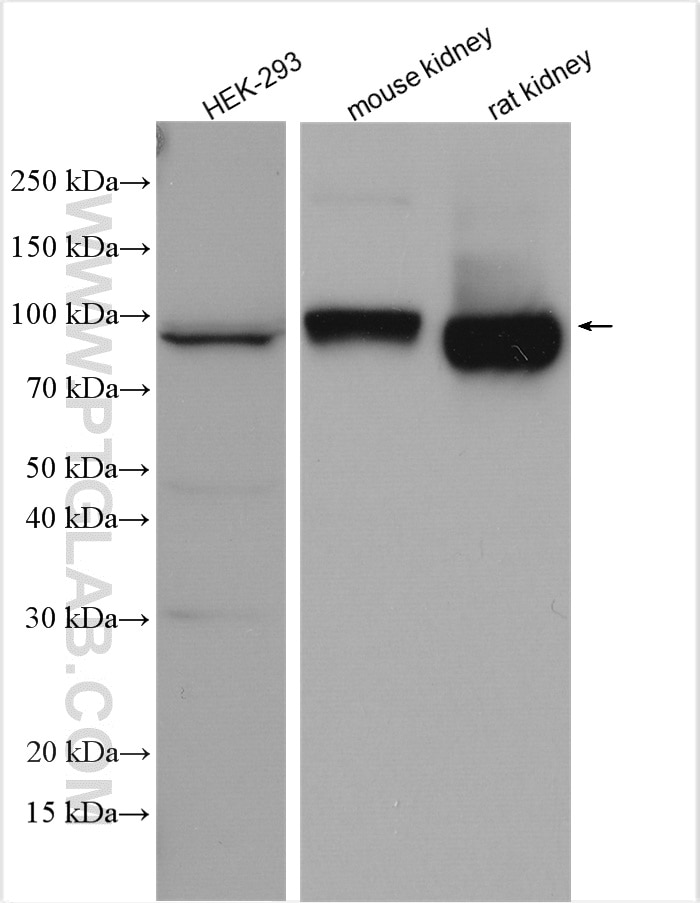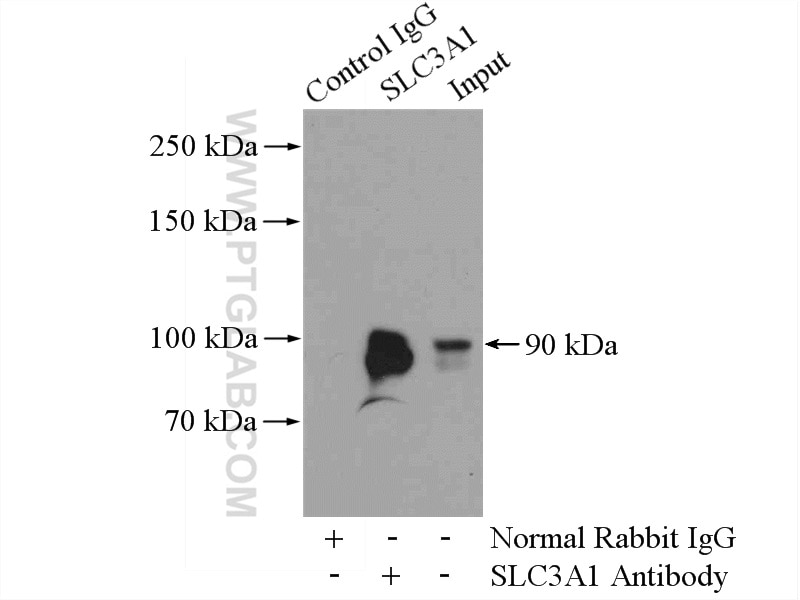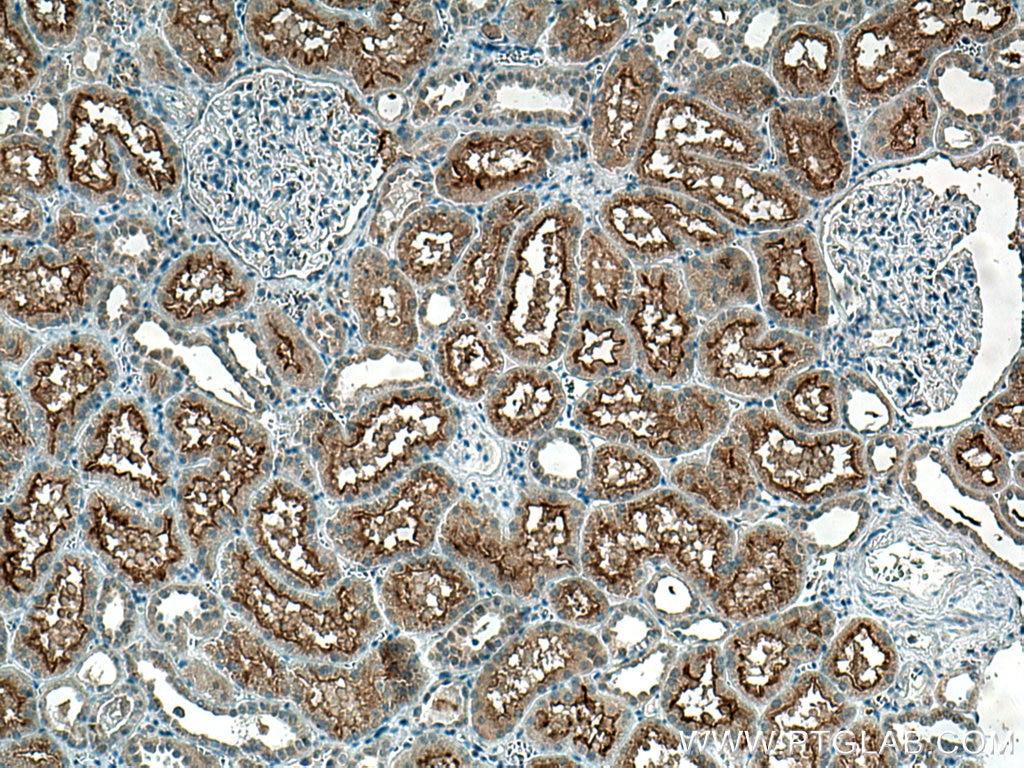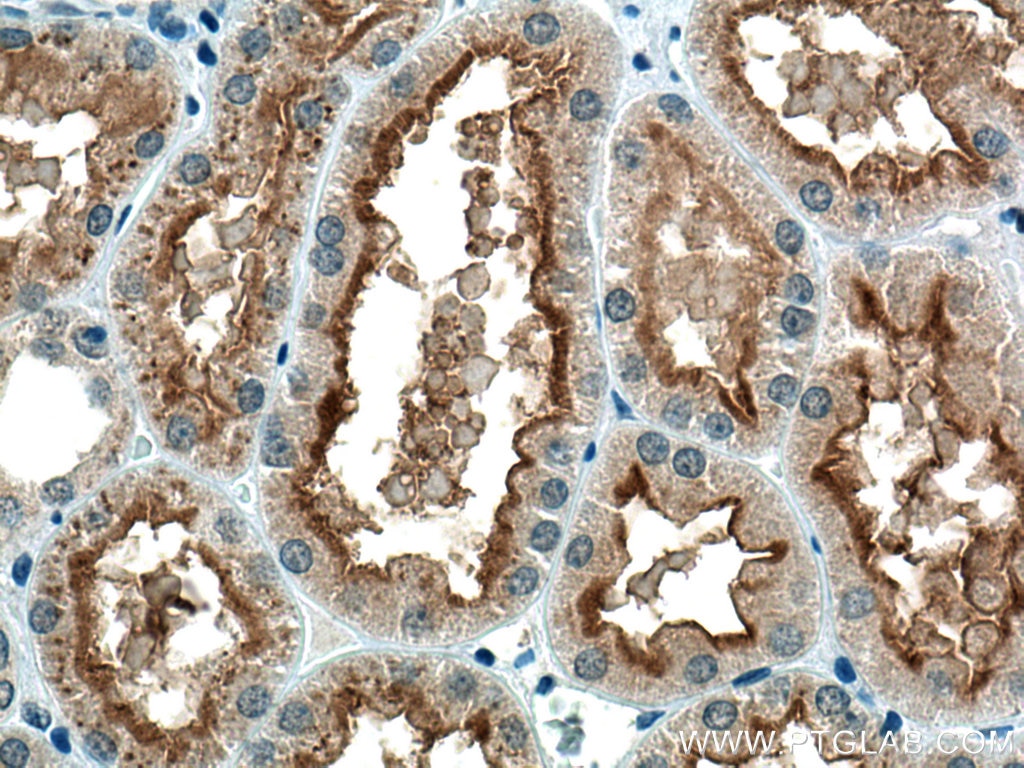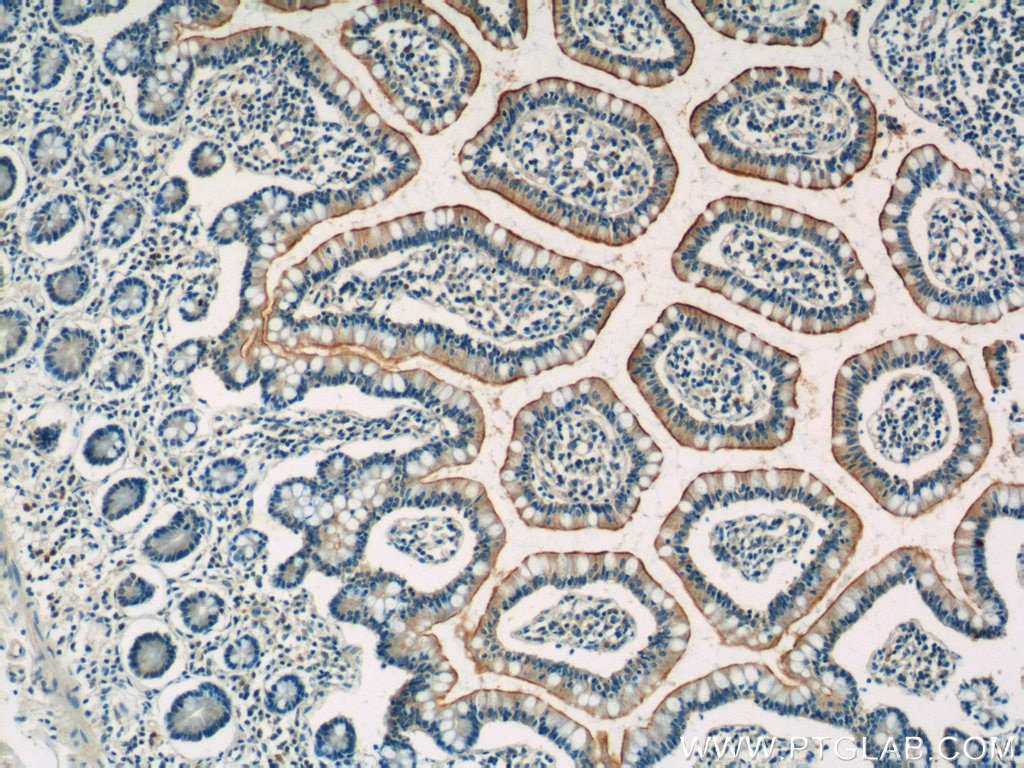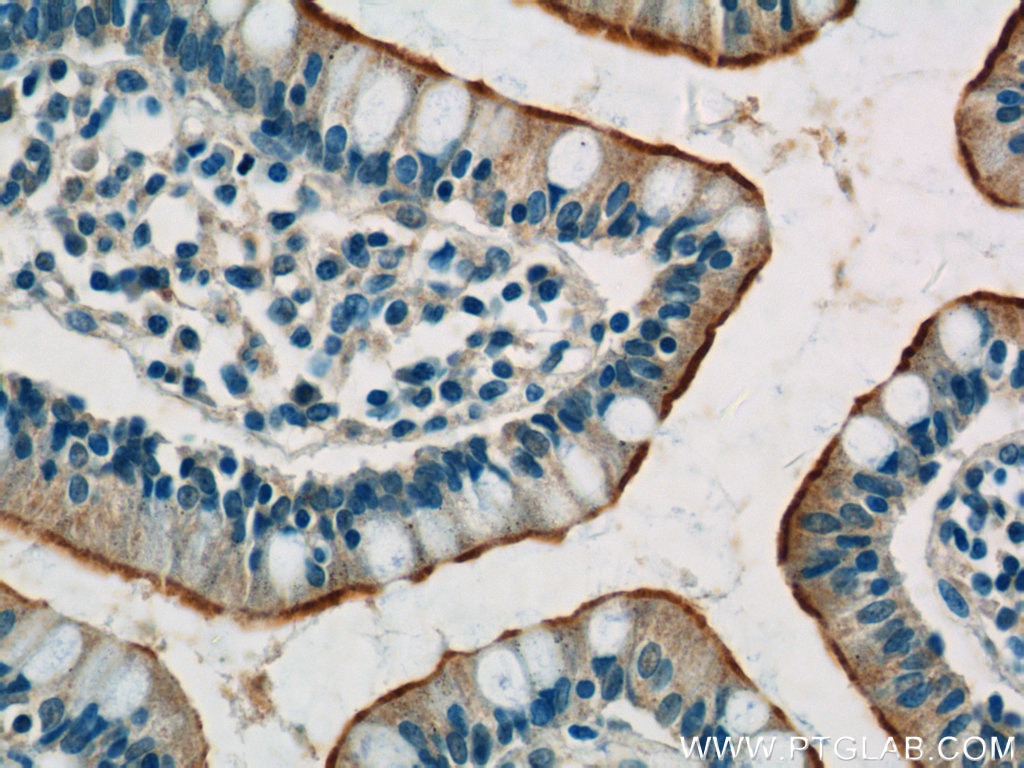Validation Data Gallery
Tested Applications
| Positive WB detected in | HEK-293 cells, mouse kidney tissue, rat kidney tissue |
| Positive IP detected in | mouse kidney tissue |
| Positive IHC detected in | human kidney tissue, human small intestine tissue Note: suggested antigen retrieval with TE buffer pH 9.0; (*) Alternatively, antigen retrieval may be performed with citrate buffer pH 6.0 |
Recommended dilution
| Application | Dilution |
|---|---|
| Western Blot (WB) | WB : 1:500-1:2000 |
| Immunoprecipitation (IP) | IP : 0.5-4.0 ug for 1.0-3.0 mg of total protein lysate |
| Immunohistochemistry (IHC) | IHC : 1:50-1:500 |
| It is recommended that this reagent should be titrated in each testing system to obtain optimal results. | |
| Sample-dependent, Check data in validation data gallery. | |
Published Applications
| KD/KO | See 2 publications below |
| WB | See 4 publications below |
| IHC | See 1 publications below |
| IF | See 5 publications below |
Product Information
16343-1-AP targets SLC3A1 in WB, IHC, IF, IP, ELISA applications and shows reactivity with human, mouse, rat samples.
| Tested Reactivity | human, mouse, rat |
| Cited Reactivity | human, mouse, goat |
| Host / Isotype | Rabbit / IgG |
| Class | Polyclonal |
| Type | Antibody |
| Immunogen | SLC3A1 fusion protein Ag9525 相同性解析による交差性が予測される生物種 |
| Full Name | solute carrier family 3 (cystine, dibasic and neutral amino acid transporters, activator of cystine, dibasic and neutral amino acid transport), member 1 |
| Calculated molecular weight | 685 aa, 79 kDa |
| Observed molecular weight | 78-90 kDa |
| GenBank accession number | BC022386 |
| Gene Symbol | SLC3A1 |
| Gene ID (NCBI) | 6519 |
| RRID | AB_2239419 |
| Conjugate | Unconjugated |
| Form | Liquid |
| Purification Method | Antigen affinity purification |
| UNIPROT ID | Q07837 |
| Storage Buffer | PBS with 0.02% sodium azide and 50% glycerol , pH 7.3 |
| Storage Conditions | Store at -20°C. Stable for one year after shipment. Aliquoting is unnecessary for -20oC storage. |
Background Information
SLC3A1(Neutral and basic amino acid transport protein rBAT) is also named as NBAT,D2h,RBAT. It is involved in the high-affinity, sodium-independent transport of cystine and neutral and dibasic amino acids (system B(0,+)-like activity).SLC3A1 can be degraded, at least in part, via the endoplasmic reticulum-associated degradation (ERAD) pathway(PMID:18332091). SLC3A1 has different isoforms vary from 79 kDa to 36kDa and the 85 kDa glycosylated protein can be detected in SDS-PAGE. (PMID:11546643)
Protocols
| Product Specific Protocols | |
|---|---|
| WB protocol for SLC3A1 antibody 16343-1-AP | Download protocol |
| IHC protocol for SLC3A1 antibody 16343-1-AP | Download protocol |
| IP protocol for SLC3A1 antibody 16343-1-AP | Download protocol |
| Standard Protocols | |
|---|---|
| Click here to view our Standard Protocols |
Publications
| Species | Application | Title |
|---|---|---|
Nat Cell Biol Directing human embryonic stem cell differentiation towards a renal lineage generates a self-organizing kidney. | ||
Nat Commun Transcription factors AP-2α and AP-2β regulate distinct segments of the distal nephron in the mammalian kidney. | ||
Dev Cell AP-2β/KCTD1 Control Distal Nephron Differentiation and Protect against Renal Fibrosis. | ||
Theranostics Cysteine transporter SLC3A1 promotes breast cancer tumorigenesis.
| ||
